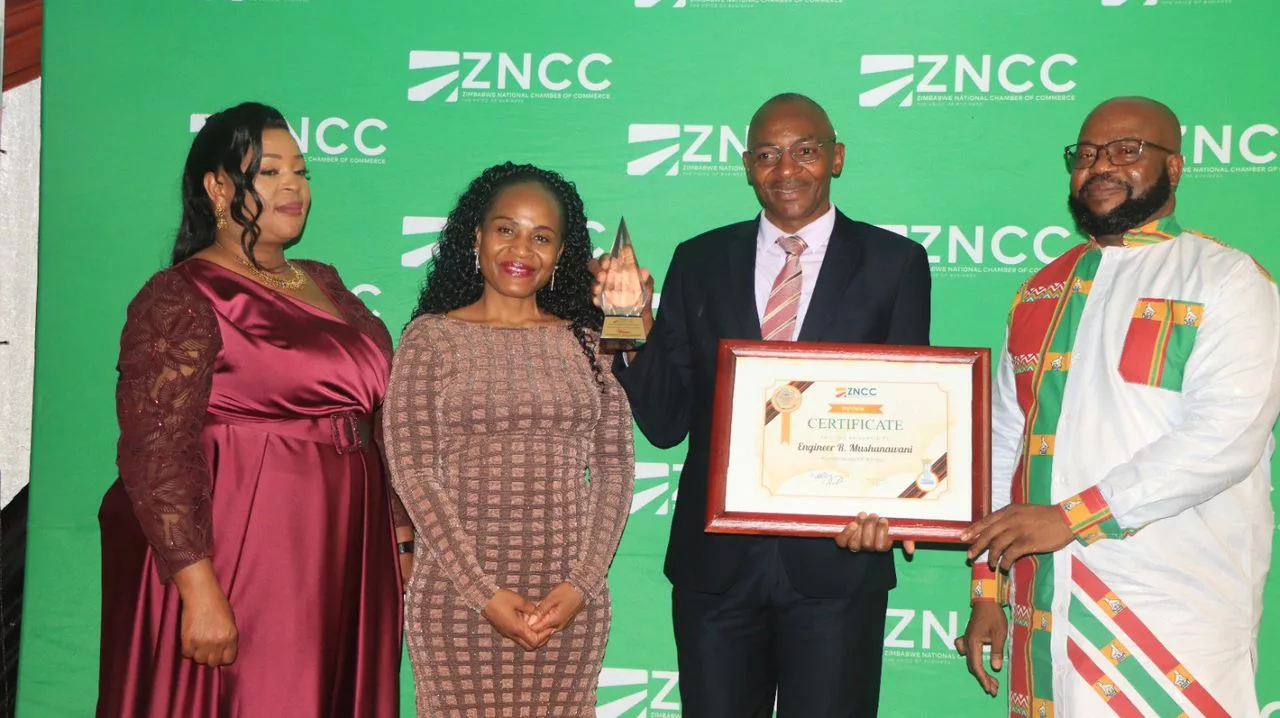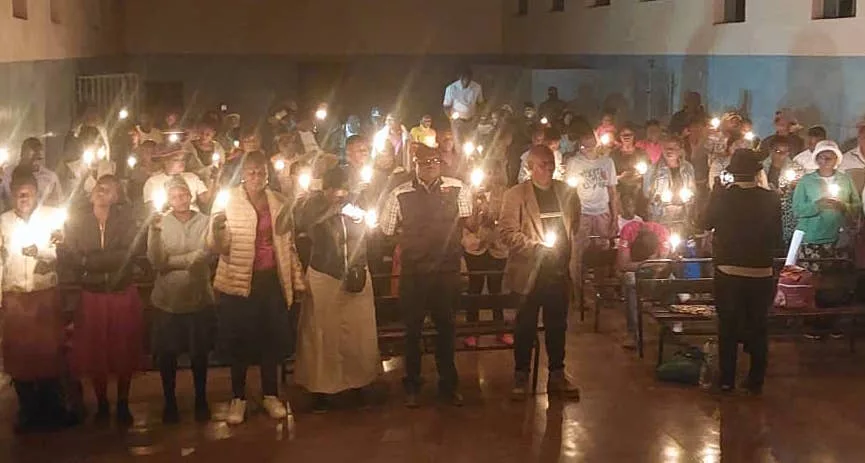|
Getting your Trinity Audio player ready...
|
Dr. Babra Ontibile Bhebe – Executive Director, Election Resource Centre, Yale World Fellow| Doctor of Laws (LLD)
This article provides a brief analysis of the newly enacted Private Voluntary Organisations Amendment Act, 2025, an Act by the Parliament and the President of Zimbabwe which has been introduced to amend the present Private Voluntary Organisation Act [Chapter 17:05] and other related legislation. This new law intends to enhance the legal and institutional structure for private voluntary organisations (PVOs) including CSOs currently registered as Trusts. The Act states that this is meant to uphold the critical role played by these actors in driving the agenda for development, social cohesion, democracy, rule of law, and governance in the interest of the general public. However, the amendments will significantly change the manner in which NGOs are currently operating in Zimbabwe.
Registration Requirements and Definition of PVOs:
The amendment act has made some changes to the definition of a “private voluntary organisation” by stating that a PVO can be a “legal person, legal arrangement”. The most significant change brought about by the Act is that it disregards the exemption which stated that any trust established directly by an enactment or registered with the High Court or the Registrar of Deeds (subject to section 6(7)) can be considered a PVO.
This means that all trusts, bodies, or associations which can be categorized as PVOs in accordance to the objects specified in the Act and not exclusively using its own funds but seeking external financial assistance or collecting public contributions, can only commence or continue operating unless registered within ninety days of the Act’s commencement or within thirty days of starting operations in Zimbabwe,whichever is later.
This registration is required even for trusts already registered under other Acts. Most civil society organizations are currently registered as Trusts and will be required to comply with this law within the stipulated 90 day timeframe, providing details about their operations, history, objectives, areas of service, and funding sources. Provisional approval may be granted, allowing operation (excluding public contribution collection) until the Board’s final decision.
According to the new law, the application for registration now requires the secretary of the PVO to lodge the application with the Registrar in the prescribed manner and fee, along with the organisation’’ constitution. Significantly, if the Registrar believes any person is a “beneficial owner” (able to exert a significant voice through ownership or assets) or a “controller” (exerting significant influence despite formal arrangements), the applicant must provide an affidavit disclosing their name and the nature and extent of their influence. The Act provides definitions for “beneficial owner” and “controller,” including instances where a person’s decision is binding, they can overrule the governing body, or they control 25% or more of the votes. This includes a State or its agencies exerting such influence.
The Registrar can reject an application if the organisation is not genuinely operating in furtherance of its stated objects or if its constitution, management, or provided information does not comply with the Act.
Another observation concerns “State-sponsored aid entities” which have now been incorporated in the broader definition of a PVO.
Governance and Oversight Structures:
In addition to this, the PVO law allows for the creation of a Private Voluntary Organisations Board responsible for assessing and approving (or declining) provisional registrations and cancellations, advising the Minister and registered PVOs, and submitting an annual report. The Board will consist of eight representatives from PVO umbrella bodies (four from the “northern region” and four from the “southern region” of Zimbabwe) and one representative from each of the Ministries responsible for social welfare, health and child welfare, justice, finance, and foreign affairs, with the Registrar as an ex-officio non-voting member. However, Minister is granted powers through the Act to appoint the Board members and the chairperson and has the discretion to appoint individuals not nominated by the relevant bodies.
The Act also establishes the Office of the Registrar of Private Voluntary Organisations within the Ministry responsible for social welfare. The Registrar is tasked with overseeing the registry and is responsible for considering registration applications and proposed cancellations. Additionally, the Registrar hears representations, advises the Minister and PVOs, and promotes coordination among PVOs with similar objectives. Furthermore, the Registrar is in charge of maintaining the Register of PVOs, which will be publicly accessible, and is required to submit an annual report. Moreover, the Registrar has the authority to delegate functions to Assistant Registrars and inspectors, ensuring efficient management of the office’s responsibilities.
Principles Governing Private Voluntary Organisations:
The Act introduces a new Part IVA outlining principles that every PVO must endeavor to follow. These principles include:
- Ascertaining the identity of donors and sources of donations, and taking measures to ensure anonymous donors are acting in good faith.
- Refusing donations from illegitimate or illegal sources and reporting such donations.
- Ensuring resources are used for registered charitable objects.
- Accounting transparently to stakeholders.
- Using formal financial channels for fund transmission.
- Not discriminating between beneficiaries based on various grounds, with exceptions for PVOs specifically targeting disadvantaged groups.
- Not conducting themselves in a politically partisan manner.
- Being sensitive to cultural values and norms.
- Economically and socially benefiting the operating community.
- Employing Zimbabwean citizens or permanent residents as much as possible.
- Implementing fair and safe labor practices.
Ministerial Powers and Intervention:
It’s important to understand that the amended Act gives the Minister significant powers. If there are reasonable grounds to believe that a PVO has stopped working according to its objectives, is poorly managed, or is involved in illegal activities, or if action is necessary in the public interest, then the Minister can apply to the High Court. The court can appoint trustees to manage the organisation for up to sixty days or suspend the executive committee. While waiting for the court’s decision, the Minister can also appoint temporary trustees.
Moreover, if the Minister suspends all members of the executive committee and does not cancel this suspension within thirty days, their positions will become vacant. Consequently, those members are not allowed to hold office until the Minister lifts the disqualification or the High Court denies a related application.
Risk Identification, Appreciation, and Assessment:
Additionally, the Act introduces a new section 22 that focuses on identifying, assessing, and understanding the risks linked to PVOs concerning money laundering, terrorist financing, and proliferation financing. Moreover, the Minister has the authority to create regulations that allow for the designation of any legal entity, arrangement, or institution considered at high risk for being misused to fund terrorism. If designated, these entities must register as PVOs and may need to meet additional requirements.
The law also states that the Minister, together with the Financial Intelligence Unit (FIU), must conduct a risk assessment of all PVOs and certain other entities at least once every five years. Additionally, designated organisations have the right to contest their designation. To minimize the risk of abuse, the Minister can also implement special measures for these organisations.
These measures may include extra reporting requirements, record-keeping procedures, and monitoring powers for both the Registrar and the FIU, as well as the appointment of a contact person for international cooperation. It’s important to note that failing to register as a designated institution can result in serious penalties, such as fines and imprisonment for governing body members. These changes are crucial for civil society organisations (CSOs) to understand, especially in light of these new developments.
Offences and Penalties:
Most importantly, the amended Act introduces new offences and increases existing penalties. For example, any PVO that supports or opposes a political party or candidate, breaches the Political Parties (Finance) Act as a contributor, or wilfully denies assistance based on political affiliation commits an offence and is liable to a fine. If the fine is not paid, national-level office-bearers become jointly liable, and failure to pay their share can result in imprisonment.
CSOs must also understand that the Act also states that the failure to comply with re-registration or amendment of registration requirements related to material changes can result in fines. If an organization fails to register it will be required to pay significant fines and or their governing body members will be liable to potential imprisonment. Obstructing a trustee appointed by the Minister is also an offence.
The regulations can prescribe increased monitoring for high-risk PVOs and measures for PVO self-regulation to prevent misuse. The penalty for contravening regulations is increased significantly.
Civil Penalty Orders:
The Act introduces a Schedule detailing civil penalty orders that the Registrar can issue for specific defaults. These defaults include failing to apply for amendment of registration after a “material change,” receiving donations from illegitimate sources, and not using formal financial channels for fund transmission. The civil penalty orders can include fixed and cumulative penalties, as well as requirements for remedial action. The Schedule outlines the procedures for issuing, serving, and enforcing these orders, including a “show cause clause” allowing alleged defaulters to explain why an order should not be issued.
Amendments relevant to other Laws:
In addition, thee amendments also extend to other legislation to ensure coherence. A case in point is theMoney Laundering and Proceeds of Crime Act [Chapter 9:24] which is amended to include the Office of the Registrar of Private Voluntary Organisations as a “competent authority”. Definitions related to “financing or partaking in the proliferation or use of weapons of mass destruction” and “proliferation financing” are inserted, and these are added to the list of “serious offences”. Another notable development is that thehe Act also introduces a new offence related to financing the proliferation or use of weapons of mass destruction and updates provisions on risk assessment, the National Taskforce on Anti-Money Laundering and combating of Financing of Terrorism, customer identification, and regulations to include proliferation financing. Furthermore, so additional changes are made to the Criminal Matters (Mutual Assistance) Act [Chapter 9:06] and the National Social Security Authority Act [Chapter 17:04].
Cooperation and Information Sharing with Foreign Authorities:
The Act allows the President or the Minister (with the President’s authority) to enter into agreements with foreign governments for reciprocal assistance in PVO registration, information exchange to combat transnational abuse for criminal purposes, and the administration and training of staff in counterpart offices. The FIU, in consultation with the Registrar, can also enter into agreements with counterpart agencies in other countries for information exchange related to combating the transnational abuse of PVOs for criminal purposes, particularly concerning PVOs suspected of terrorist financing or proliferation financing (“private voluntary organisation of concern”). The FIU is designated as the point of contact for international requests related to such PVOs.
Overall Impact on NGOs:
To summarize the impact of this law on civil society, here are the main points:
1. The expanded definition of PVOs and the mandatory registration requirement will likely bring a larger number of organizations under government oversight. The detailed scrutiny of beneficial owners and controllers aims to increase transparency but could also be used to exert influence.
2. The principles of conduct impose new obligations on PVOs, particularly regarding donor due diligence and the use of formal financial channels, which may present practical challenges. The enhanced powers of the Minister to intervene in the governance of PVOs raise concerns about potential political interference and limitations on the autonomy of these organizations. The focus on risk identification related to terrorism and proliferation financing could lead to increased scrutiny and compliance burdens for PVOs, especially those receiving international funding. The provisions for information sharing with foreign authorities highlight a growing emphasis on the transnational aspects of PVO operations and potential risks.
3. The introduction of civil penalty orders provides a new mechanism for enforcing compliance, and the increased offences and penalties for non-compliance could create a more precarious operating environment for NGOs. The transitional provisions offer a timeline for existing organizations to comply with the new requirements.
Overall, the new law represents a significant shift toward greater government oversight of civil society and NGO operations. Although the stated goal is to enhance transparency and accountability, it is important to realize that the law’s broad scope and increased state power could impact NGOs in various ways, including their operational independence, funding, and overall ability to fulfill their responsibilities. Therefore, it is crucial for NGOs to fully understand the new requirements introduced by the law and to take swift action to ensure compliance in order to avoid any potential disruptions to their operations. Ultimately, every entity must focus on re-registration as a priority.






